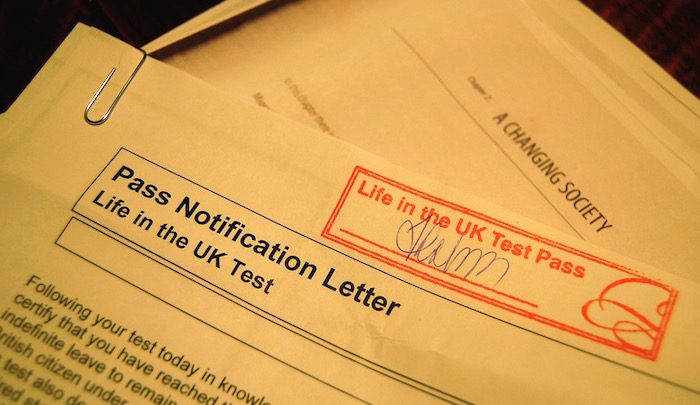
Citizenship tests are at once a symbol of the nation and a tool of exclusion. They reproduce narratives of difference between existing citizens and newcomers, based on the logic that those newcomers will need to adapt to our way of life if they are to become one of us.
Yet citizenship tests don’t gate-keep access to some elite group. Rather, these tests gate-keep the ability to exercise rights and to fulfil responsibilities in the state that the noncitizen calls home. People who are prevented from exercising these rights and fulfilling these responsibilities are not new arrivals; they are long-term residents who have lived as full members of society for a number of years. They are taxpayers and they have contributed to the life of the communities in which they live.
There is an argument that citizenship tests are necessary because they serve an important function in preserving the unique history and culture of the nation in an age of immigration. As a result, they preserve a form of binding sentiment which, it is supposed, is necessary to preserve strong and fully functioning liberal democratic institutions.
However, this argument depends on a strong and cohesive sense of ‘the nation’. And I would contend that this cohesive history and culture is simply a fantasy. This is overtly evident in the United States, where in his address on undocumented migration President Barack Obama drew attention to the fact that ‘Americans always have, and always will be, a nation of immigrants’. While it is often seen as less evident in, for example, Western Europe, the fact remains that nations are deeply diverse and are increasingly so as a result of migration patterns over generations.
Citizenship tests are an exercise of the state’s authority in defining the ‘good citizen’ according to their own view of how citizens should act and what kind of culture they should conform to – be this a broad liberal democratic culture or a narrow nationalistic one. In setting out this ideal, citizenship tests construct hierarchies of belonging which exclude long-term residents from citizenship rights on arbitrary grounds, and in contravention of the principle of equal moral worth – some members of a society are being excluded from citizenship rights without robust reason. As full members of society, long-term resident noncitizens are no different to existing ‘bad citizens’ who also don’t conform to the good citizen ideal. Yet, they have access to citizenship rights despite not passing this test or conforming to this ideal.
And there is a further problem. In excluding these ‘bad citizens’ from the narrow vision of the good citizen expressed by the test, the test itself reproduces forms of exclusion experienced by existing citizens across a range of lines of difference including history of migration, class and gender (see Thom Brooks’ recent analysis of the Life in the UK test as an example). The narrow focus on a dominant ideal of the good citizen and exclusion of this diversity of identity that is present within the state (and which correlates with persistent inequalities and exclusions) contravenes the principle of equal respect for existing citizens by reproducing lines of exclusion in documents which are symbols of the nation – symbols of who we are.
It could be – and is regularly – argued in response that some forms of citizenship testing which focus only on civic knowledge and language are more valid than those which include content about national history and culture, on the basis that liberalism requires active citizens who will support liberal institutions through democratic participation.
It is fair to say that noncitizens benefit from civic education in much the same way as existing citizens do through the school system, and that language education provision is important for enabling new arrivals, already often in precarious positions, to understand their rights, to gain support from institutions and to contribute to community life. However, forcing someone to learn and language and prove their ability to support liberal democratic institution – and making this contingent on their access to rights – is more problematic.
Non-participation is not a problem which stems from migration. It is a problem experienced as a result of citizens – and all kinds of citizens, not simply new arrivals – feeling increasingly alienated from democratic politics. If citizenship tests are a response to non-participation then they are the wrong solution, scapegoating some of the most vulnerable members of society for problems beyond their control.
Citizenship tests construct an ideal of the good citizen which will be as remote to the majority of citizens as it will be to noncitizens, and in doing so reinforce the very constructions of difference which create exclusion and deepen divisions in society.
Further Reading on E-International Relations
- Citizenship Revocation as a Human Rights Violation: The Case of Shamima Begum
- Negotiations in the Field: Citizenship, Political Belonging and Appearance
- The Affective Times of Fear: Stories from India
- Travel Learning Clusters as Signature Pedagogies
- Signature Pedagogies and International Relations Theory
- What Is Nationalism? A Nation? A Nationalist?